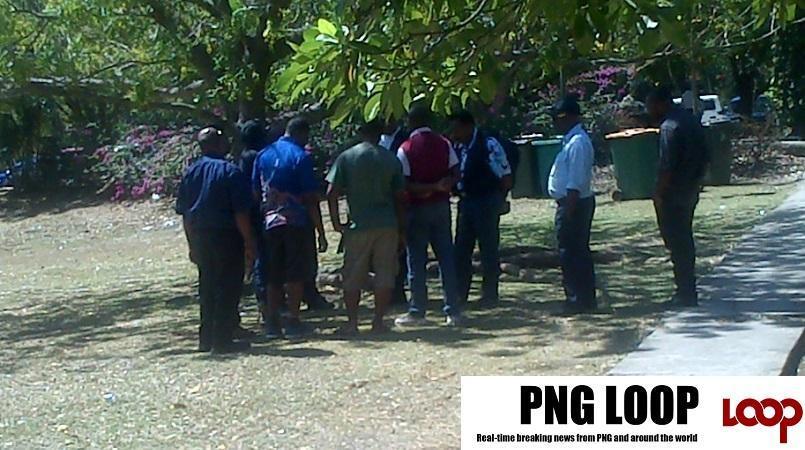
The six soldiers who had the murder case against them struck out in the Committal Court yesterday can be arrested again with the same charge laid against them sometime in the future.
This was clarified to Loop by police prosecution.
The case against soldiers Jude Nidung, Kenneth Yangun, David Travolta, Gregory Tuaki, Alwin Matiabe and Tobias Samson was struck out in court yesterday after an investigating officer from the Police Criminal Investigation Department failed to produce his completed investigation files in time before the court.
According to the Public Prosecutor “Going to Court guide”, when a case is struck out by the court, it is not a dismissal as the same charge may be laid again at some time in the future. The “Going to Court guide” is a guide to understanding the criminal court processes in Papua New Guinea.
The same defendants can be arrested again once the investigation files are completed.
The guide says that when a case is dismissed, The Magistrate decides on the evidence available that the defendant is not guilty as charged. That person cannot be charged with or prosecuted for the same offence at any later time.
However, when a case is dismissed, only the Public Prosecutor can elect the case to proceed to the National Court. This is an indictment signed and presented in the National Court by the public prosecutor in special cases where the committal magistrate has refused to commit a person to trial. The ex officio indictment is only to be signed by the public prosecutor.
In the case involving the six soldiers that was struck out yesterday, the court ruled to have the matter struck out after the arresting officer failed to produce the required files in court after the matter was adjourned from March 2 for the last time.
Instead, the officer yesterday requested through police prosecution team to have the matter adjourned, yet again, to give him time to compile the completed investigation findings.
This was refused by Magistrate John Kaumi as more than enough time was allowed by the court for investigators to perform.
“In this instance, the court has bent over backwards to accommodate the police and state interest because it was a matter of public interest,” Magistrate Kaumi said when striking out the case.
“The inefficiency of police cannot be allowed to be used as an excuse to unnecessarily delay the finality of the matter and impinge on the constitutional rights of the defendants.
“As much as the matter is of public importance, the rights of the defendants will need to be upheld,” he added.
